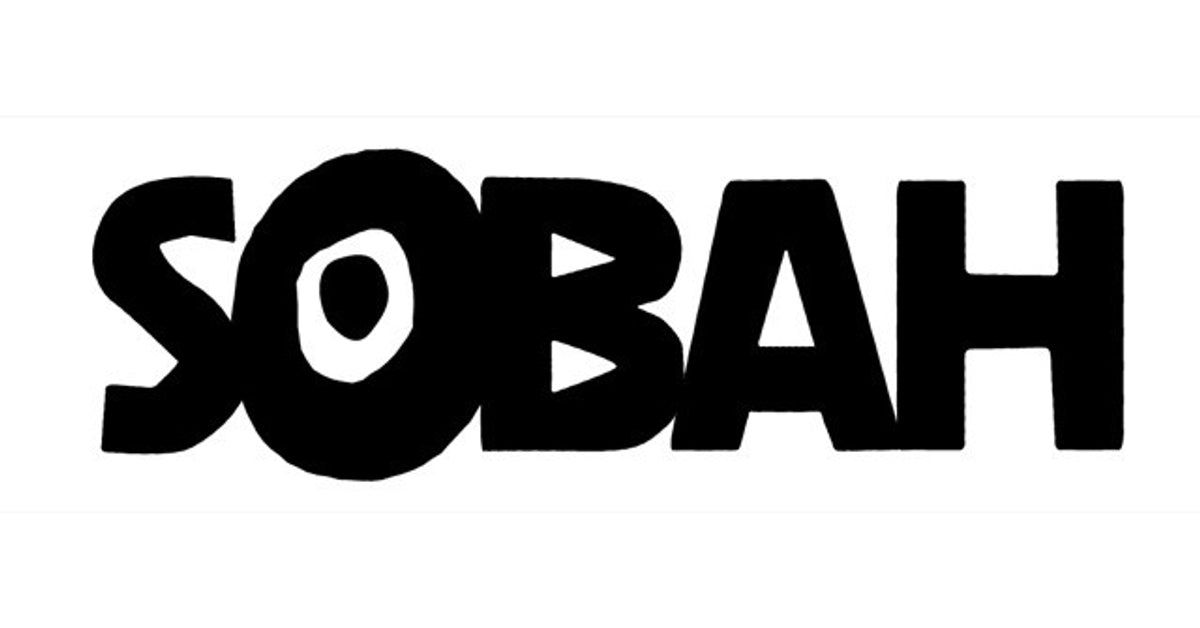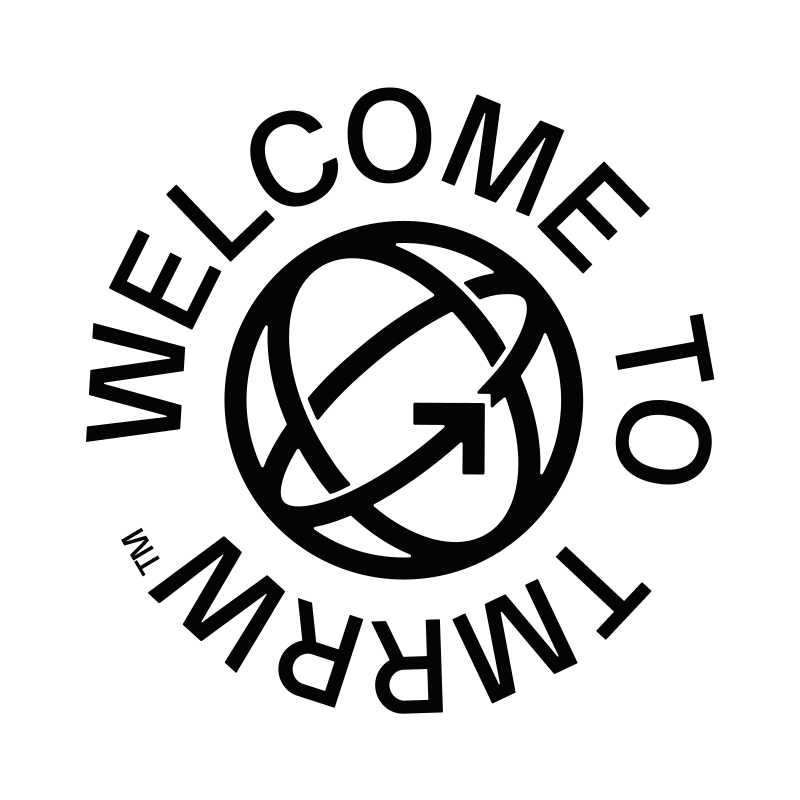Dr. Clinton Schultz started Sobah, a non-alcoholic craft beer company, with his wife Lozen in 2017, after a conversation with his son.
“One of my boys, who was about six at the time, pulled me up on my drinking habits and shook his little finger in my face. ‘Dad, can you stop drinking silly drink?’ he asked. I rolled over, all hung over and said, 'yeah, you've got me,' says Schultz.”
And that was it. That was the start of Clinton's Sobah journey and the start of the whole Sobah Beverages entity that he has created now.
After a successful equity crowdfund on Birchal last year, which valued the business at $11M, Sobah is another great demonstration of how doing good can be good for business.
We asked Clinton to share a bit more about the journey he’s been on to build a successful purpose-driven business.
Getting started
We decided to launch Sobah out of my own self need. When I stopped drinking here in Australia, there were no options for people who choose not to drink. You’d be offered either a ginger beer or a soft drink with 40 grams of sugar in it – or a soda water with a piece of lime in it, and be stung six bucks for it.
Neither sat well with me. So I started experimenting and making non-alc beer for myself. We had a small food truck that we were doing native-inspired foods out of; traditional style cooking. So it felt really natural to start pairing the beers that I was making for myself, with the foods that we were doing in the truck.
Whenever I’m in a business space, being a Gamilaraay man – an Aboriginal man – I always look at it from a perspective of ‘how do I create something good out of this? How do I give back out of this?’
When we decided we were going to grow Sobah, from day dot we knew that we wanted to be a purpose-led business and a social enterprise.
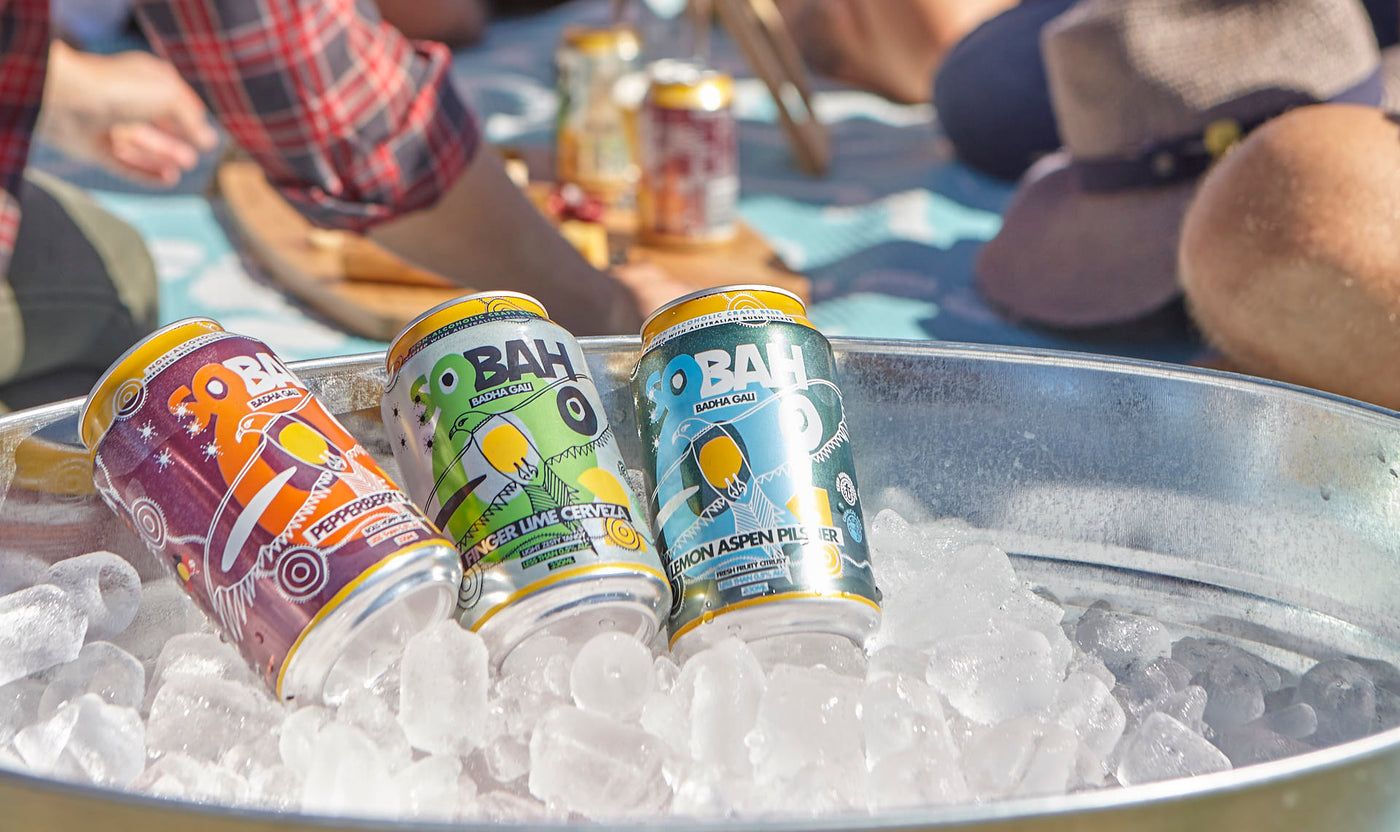
The purpose
I’m a psychologist by profession. I worked in the drug and alcohol sector for a long time. I still practice, as well as doing all this. One of the things that always frustrated me was that the cool, unique, grassroots initiatives that were working for people – particularly people from different cultural and ethnic backgrounds – were getting wonderful results. But, because they were small or because they didn’t have the empirical data to back what they were doing, they really struggled to get funding.
I work more from my traditional learnings as a Gamilaraay man and what has always worked for us in the space of social and emotional wellbeing, and I’ve always tried to incorporate that into what I do. I could see that there were opportunities for out of the box healing initiatives to really make a difference in people’s lives, but they just weren’t getting the support that was needed.
So one of the drivers for us here at Sobah has always been to create some independent support and funding to help those initiatives, as well as create a wider platform to breakdown the stigma of socialising sober and raising positive awareness of First Nations' culture, arts, language, and history.
We support the deadly (awesome) work of Preston Campbell Foundation, The Wayne Weaver Foundation, Foundation for Indigenous Sustainable Health (FISH), Half Cut Org and other businesses and programs surrounding the space of mindful drinking and sobriety, as well as healthy living and sustainability.
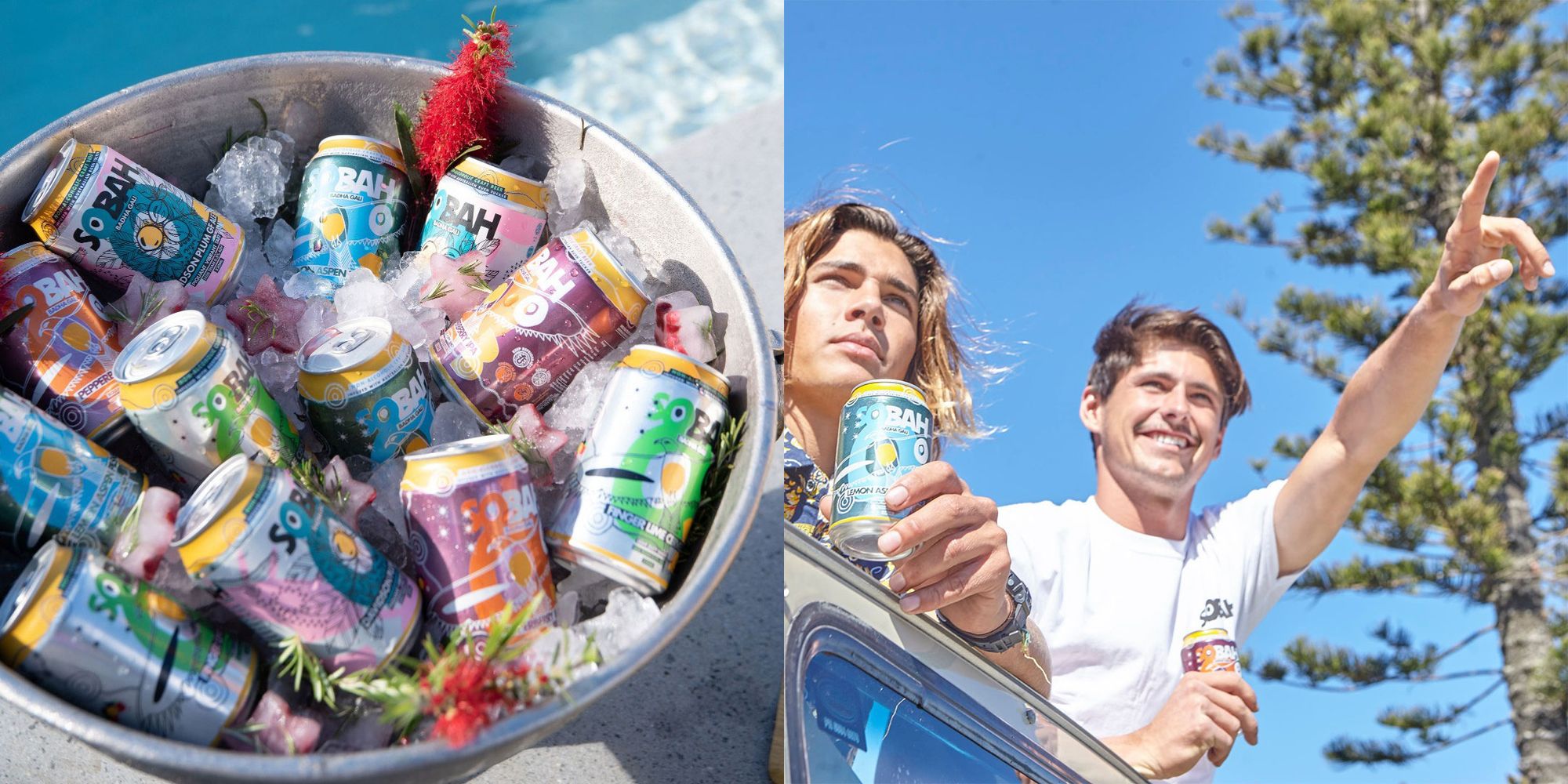
Changing perceptions
Non-alc had a bad name in Australia. There were a couple of big brands that had been around for 20-odd years, that really didn’t taste great. The first two years were about re-educating people that non-alc craft beer could taste really good, and is actually really good for you.
The market has definitely changed from when we first started. It was originally baby boomers – those that have drunk all their lives – and were now trying to get a few extra years by changing some lifestyle habits. It’s younger people now, too. So, people in their early 20s through to 35 is our strongest market now. There’s been a massive shift in lifestyle – particularly drinking habits – of young Australians.
We’ve been beneficiaries of an ongoing process of people making healthier lifestyle choices. We’ve seen it over the last decade or more – it started with things like gluten-free, and lactose-free options – and now we’re seeing a whole wave of meat-free options.
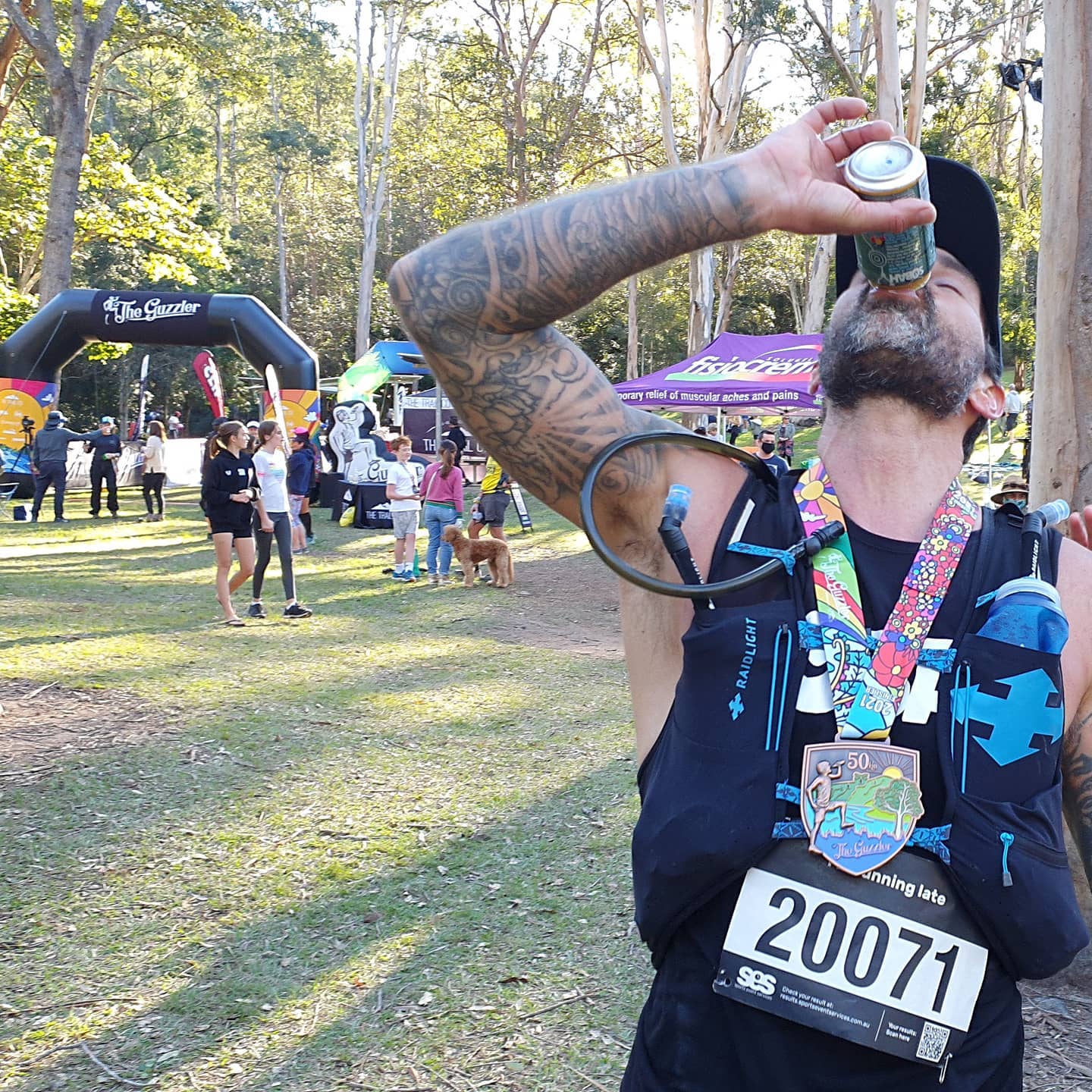
Using native ingredients
I’m a true believer that the more we can get Australians used to using our native ingredients and our native produce, the more we can support the growth of that industry and start to plant out the stuff that’s been introduced that does so much damage. So we’d like to think that we’re playing our little part in making Australian farming more sustainable. If we can help introduce people to some of our beautiful native spices, fruits and herbs, that’s a really cool thing to do.
It’s one of the great opportunities for us, as First Nations people in Australia, to be a part of an economic system that governs us, while maintaining our strong cultural connections to place. That to me is awesome.
The native foods industry is a blossoming industry in itself. We’ve grown faster than our producers can produce with some of the things that we do. So we’re now having to look at what we need to shift and what can we get more access to, that’s going to make our products more readily available while we grow. But, ironically, we now have big multinational companies buying up entire crop loads so small First Nations businesses are finding it more difficult to get access to First foods.
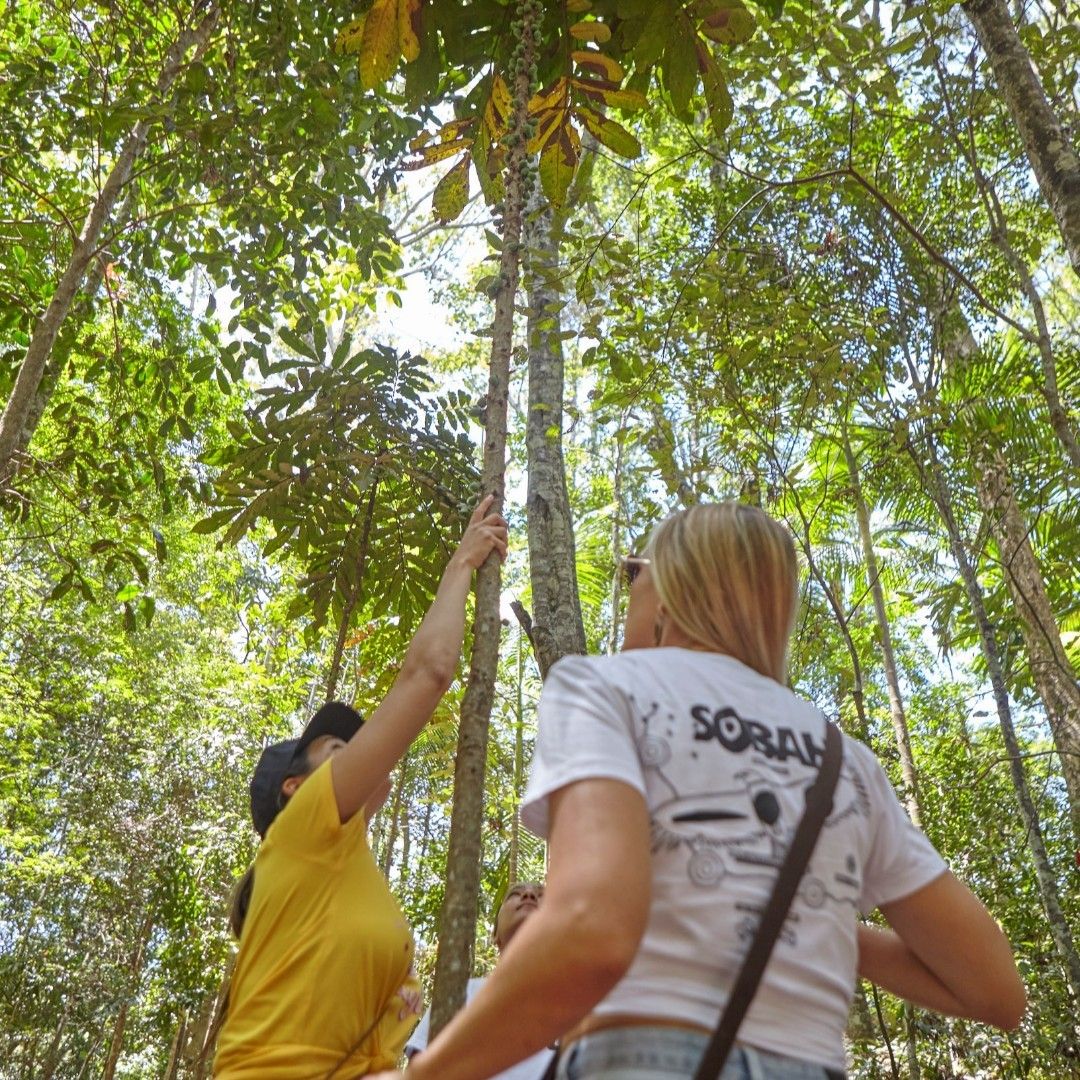
The challenge of racism
Like it or not, racism is still real. Institutional racism is rife in Australia. We’ve been turned down from places because they look at our can and it has an Aboriginal flag on it. That hurts, but as a First Nations business there’s this underlying tone that is always there, where you’re viewed as less capable; less competent than other businesses. Governments love to run their rhetoric about the support they have for First Nation industry and First Nations peoples. But the support isn’t there.
At an individual level, Australia is getting better. Individuals’ attitudes are changing. I really do believe that – particularly with younger generations. Unfortunately, those younger generations aren’t running the country, or running industry, or running business.
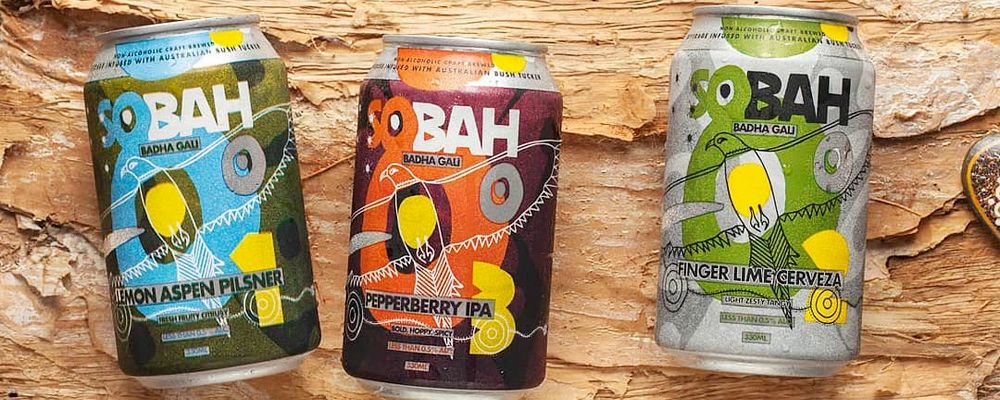
Do less harm. Do more good
Our prime value is do less harm do more good. For us, the can is an opportunity to promote some of the wonders and the positivity of First Nations culture. Be it the language groups of where it’s come from, the stories around the artwork on the can and the opportunities that artists may have by helping us produce those. We’re constantly trying to look at what good can we produce, knowing that we’ve done some damage here.
Acceptance has always been a powerful processing and healing tool for us as First Nations people. I have to acknowledge that I play my part in damage that’s caused to this planet.
Looking forward
We tried to get government support so we could open our brewery as carbon neutral from day dot, but we didn't get the government support. So we’ve gone “Okay. Let’s go back to square one and let’s look at how quick can we do that self sustained.”
The equity crowd fundraise that we did through Birchal in October last year, where we managed to raise a million dollars from 586 awesome individuals, for 9% of our company giving the company a valuation of 11 million to move forward with.
And carbon neutral isn’t enough for us. We’re a water intensive business, so we are looking at how we offset the water usage we have. We want to be water neutral. How do we recycle as much water as possible? And we’re figuring out how much forest we actually have to support to produce the water that we use.
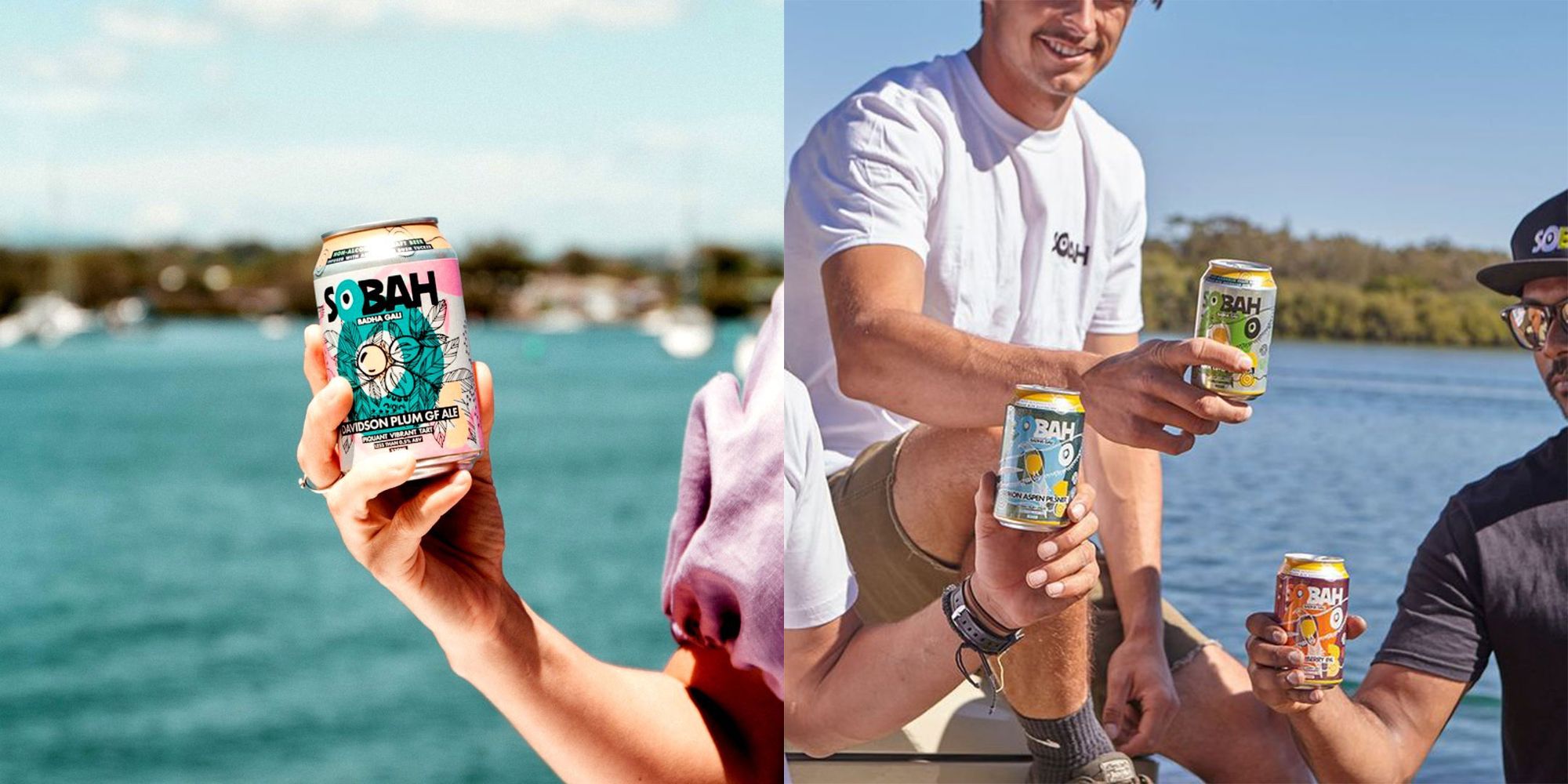
Some advice for those starting out
Ensure you’re as passionate as hell about it yourself. And that those you’re close to are as well.
This business wouldn’t exist without my wife, Lozen. She is the backbone of what we do. She works her ass off; she’s had to put a bunch of our own dreams on hold so that we can grow what was my dream at the start. And I will be forever grateful for that. She’ll probably say I’m forever in debt for that, but it’s true.
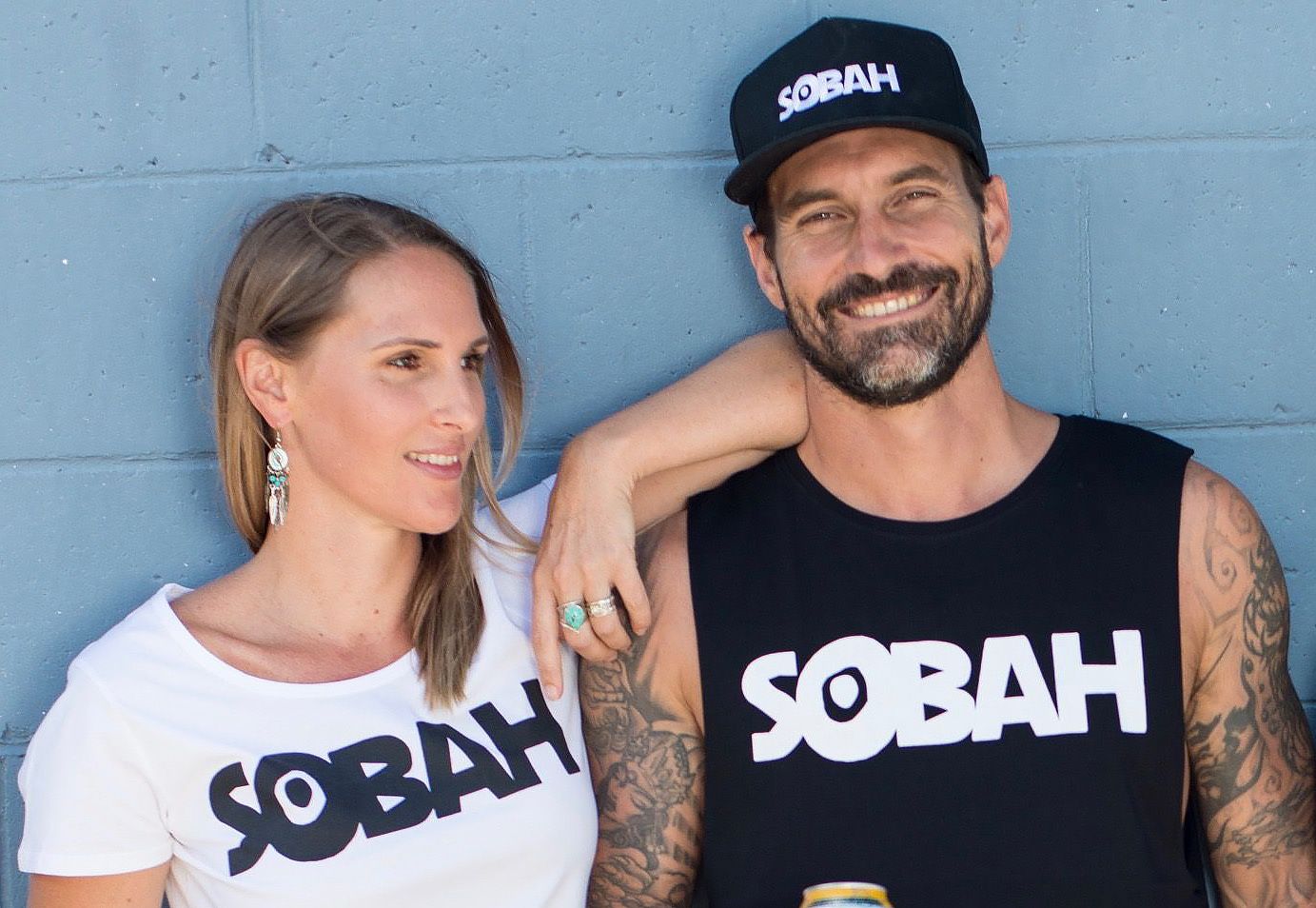
Dive Deeper
